Baking soda and baking powder are two different things. It’s easy to want to sub out one for the other, but you definitely don’t want to do that. If you do, your cake can turn out way different than you expected.
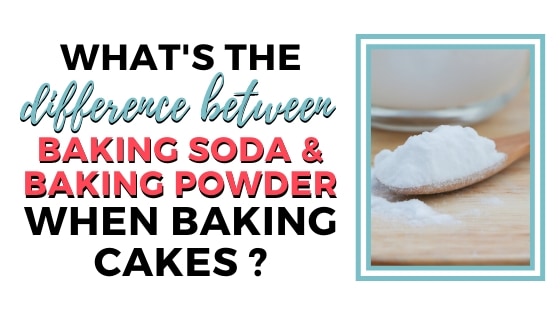
So let’s get into what each is and what they’re used for.
As an Amazon Associate, I earn from qualifying purchases.
Why is baking soda and baking powder used in cakes?
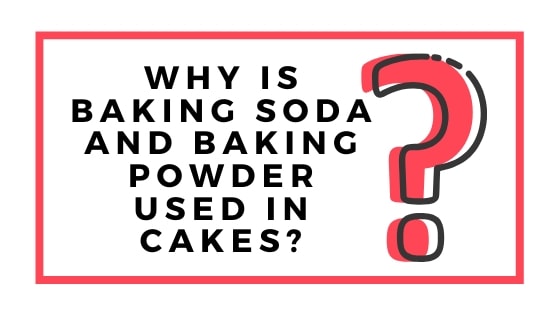
Baking powder and baking soda are leavening agents, which means they help the cake rise.
They’re not the only thing that helps with rise though. Other things like the eggs and how the cake is mixed (incorporating more air in the creaming method) and things like that will also have an effect on how the cake rises.
What is baking soda?
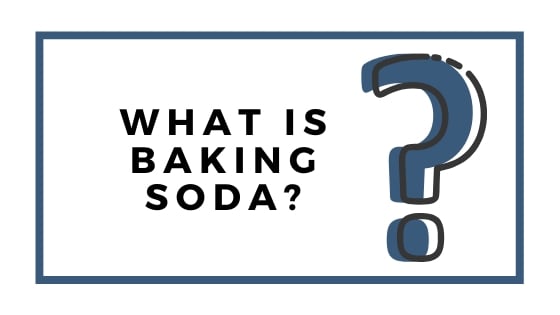
Baking soda is an alkaline compound and used as a leavening agent when baking cakes. When it’s mixed into cake batter, it will react with acids in the batter and form carbon dioxide. That forms bubbles, which causes the cake to rise.
Generally, baking soda is only added when there is an acidic ingredient in the cake recipe, not always, but that’s generally the case. Baking soda is a base and helps to neutralize some of the acid.
You don’t always want to neutralize all of the acid in a recipe, but sometimes you want to neutralize just some of it. If you add too much baking soda, or there’s not an acid for it to neutralize, you could get a weird taste to your cake. Some people call it a soupy taste.
Baking soda is also stronger than baking powder, so they aren’t interchangeable.
What is baking powder?
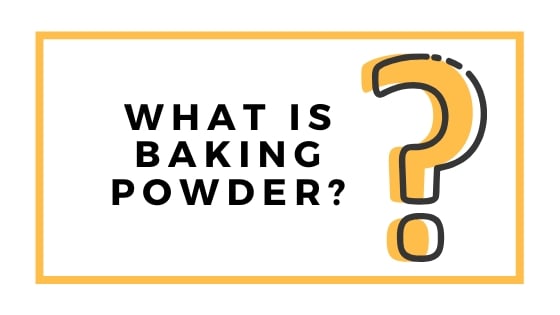
Baking powder is used as a leavening agent when baking cakes. Baking powder actually has baking soda in it, but it’s not made up completely of soda. It also has a weak acid in it. It’s also double acting, which means it reacts when it’s added to the batter (liquid) and when it’s heated.
When the baking powder starts reacting with the liquid in the batter, it forms carbon dioxide bubbles (like the baking soda does) and the bubbles cause the cake to rise.
Baking powder is generally used in cake recipes where there isn’t any acid in the ingredients, or there is some acid, but the recipe developer feels that acid doesn’t need to be neutralized. (It’s all about the taste and texture.)
How do I know which I should use in my cake?
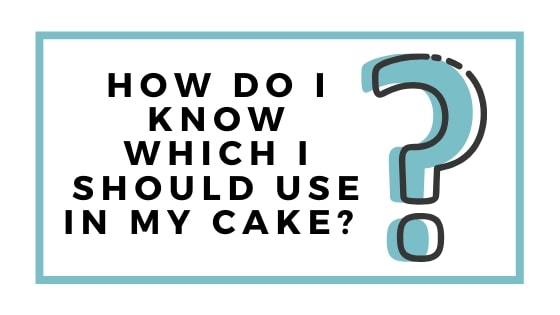
Use what the recipe calls for. Some recipes call for both. That’s generally because the baking soda alone may only be enough to neutralize the acid, but the cake will need more lift once it’s baking…so along comes the baking powder.
Baking soda reacts immediately when you add it to the batter, but baking powder is double acting and reacts when you add it to the batter (when it gets wet) AND when it’s baking (when it gets hot). This helps the cake rise for a longer amount of time.
In general, you don’t want to sub these two for each other as they are different ingredients and work differently than each other. If you use them interchangeably, you just can’t predict the results.
So, that’s the science behind why you don’t want to substitute them for each other. There’s no conspiracy behind it…they’re both inexpensive ingredients to buy, really. They just work differently and to get the best cake, you always want to use what the recipe calls for.
I hope this was helpful and perhaps explained a bit of the mystery behind why you use baking soda in one recipe and baking powder in another. If you have any questions or I didn’t clear something up, feel free to add a comment and I’ll do my best to address it!
OTHER POSTS YOU MIGHT LIKE:
- Which cocoa powder do I use? (What’s the difference?) – coming soon
- How to Measure Ingredients When Baking Cakes
- How to Tell When Your Cake is Done Baking
Don’t forget to pin it below!
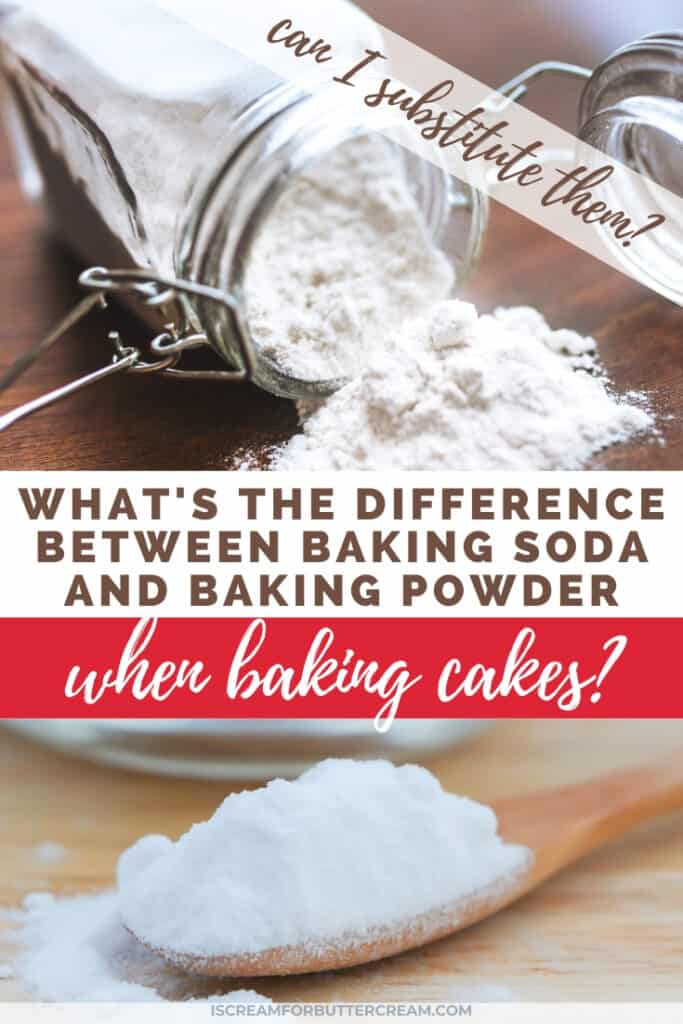
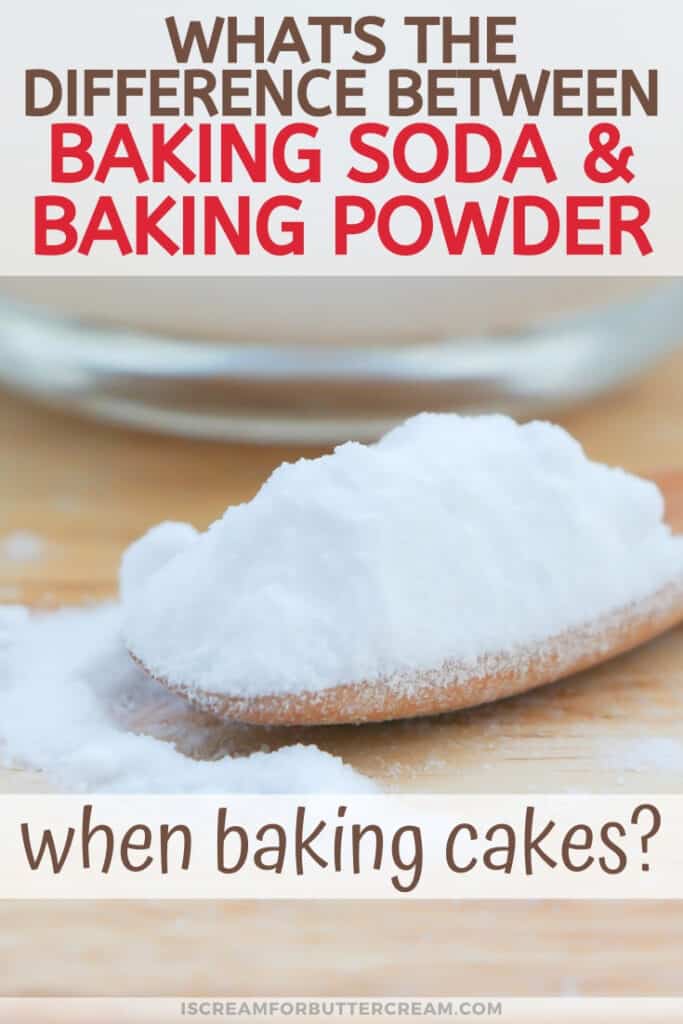

Tracy
This was very informative! Many moms ago, I used baking soda instead of baking powder by accident in cornbread. From the first bite I knew something was wrong! Now I have them labeled Soda and Powder in my cupboard and always double check! I like learning the science behind baking, since it’s so much more about science than cooking is, so thanks!!
Kara Jane
Oh I agree! I never liked science in school, but I LOVE cake science. 😉 And I’ve done the same thing with the baking soda and powder…just grabbed the first one I saw on the shelf and used it without paying attention to what I was doing. lol!
Veronica
Does it make a difference what flour is being used? I find that when using cake flour and baking powder the cake flops. the original recipe called for either all-purpose or cake flour. I always use cake flour. This recipe also has lemon juice in it.
Kara Jane
Veronica, I haven’t found that to be a problem. I have a few recipes on the blog that call for both cake flour and baking powder and they’ve turned out well. I’ve always understood that when you use cake flour instead of AP flour, that you should add in two extra tablespoons of cake flour for every 1 cup of AP flour called for in the recipe. The next time you make that recipe that calls for cake flour, you might try that. There are other reasons besides the type of flour that it could be happening though.